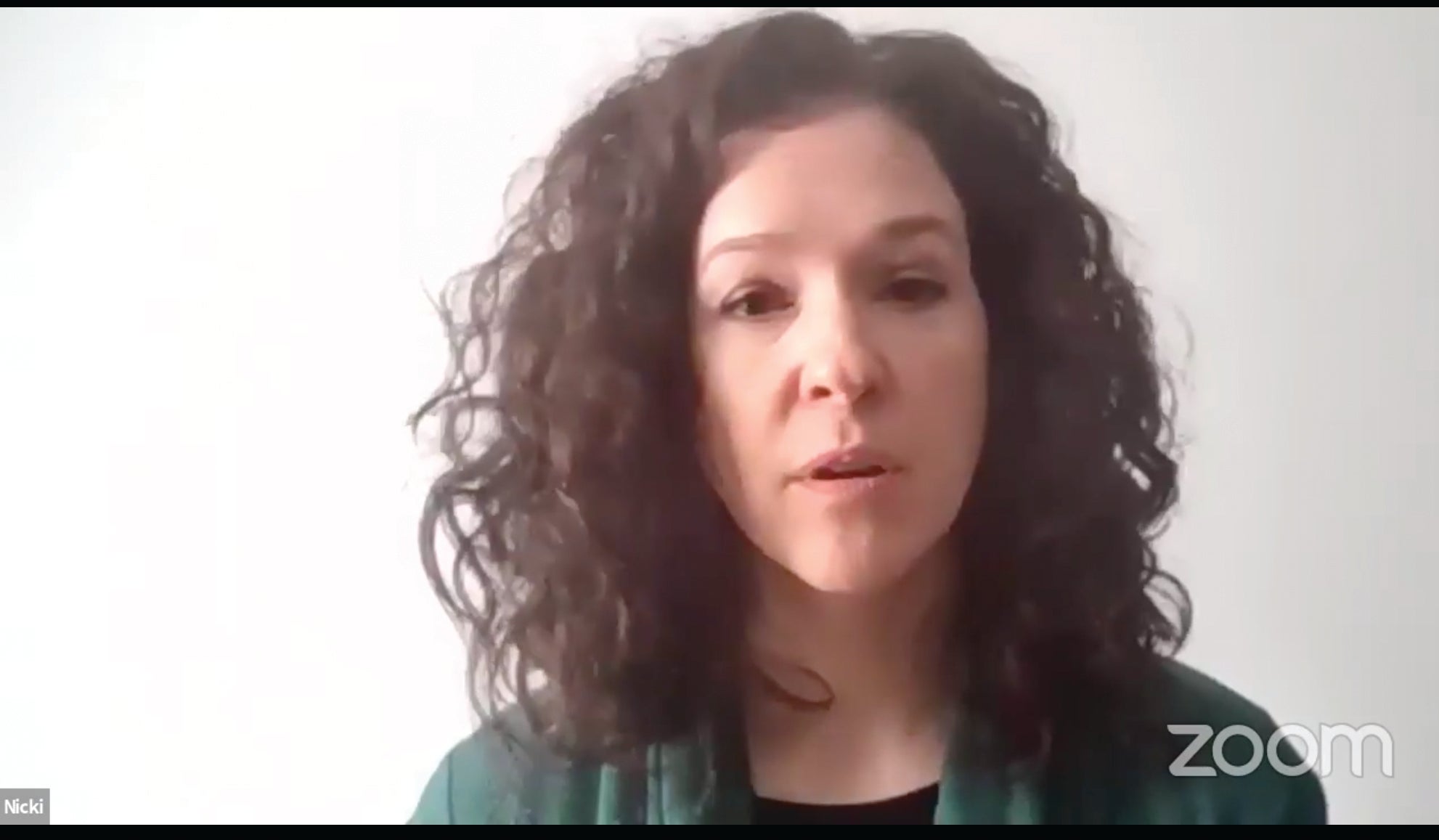Berrien County Health Department, Spectrum Health Lakeland discuss COVID-19 immunity, quarantine practices
Published 1:57 pm Friday, December 4, 2020

- Nicki Britten, health officer at the Berrien County Health Department, addressed the community on Facebook Live on Friday morning. Britten was joined by Loren Hamel, president of Spectrum Health Lakeland to discuss immunity, vaccinations and quarantine procedures. (Leader photo/CHRISTINA CLARK)
|
Getting your Trinity Audio player ready...
|
BERRIEN COUNTY — On Friday morning, Nicki Britten, health officer with the Berrien County Health Department, and Loren Hamel, president of Spectrum Health Lakeland, took to Facebook Live to give an update on what quarantine practices may have changed, as well as COVID-19 immunity and vaccine timelines for the area.
“There has been a change in options for quarantine,” Britten said. “The 14-day quarantine is still the gold standard, and still is recommended that it be observed if an individual is exposed to COVID-19.”
She went on to say that research has been showing that the majority of people who will develop COVID-19 after an exposure, generally do so within the first 10 days of the quarantine period. The development of symptoms tends to occur within the 10 day time period.
“In an effort to make quarantine less burdensome and have less of an impact on education, there is an option for shortening quarantine to 10 days with a minimal risk of someone developing symptoms within that last four days,” Britten said. “It’s still a risk, but there is less risk.”
Britten said there had been discussion for those who had an exposure, and tested negative on day five or later of quarantine, shortening their quarantine time to just seven days.
“The big caveat is that is only feasible when you have an abundance of testing resources,” Britten said. “We are not in that situation right now where we have enough testing supplies so that everyone in quarantine who wants to be tested on day five could be. We don’t have the capacity to support that in our community.”
Immunity will soon, hopefully, be bolstered by vaccinations anticipated to be approved for emergency use authorization by the U.S. Food and Drug Administration. As two vaccines by major drug manufacturers Pfizer and Moderna show promising results,and go before the FDA in the coming weeks, both Britten and Hamel acknowledged the vaccine deployment for the area will be slow, but is coming.
“A week or two ago, we were pretty optimistic that we might get 30,000 [vaccine] doses,” Hamel said. “We now being told we will get 995 doses.”
The initial allotment is much smaller than anticipated, though Hamel is positive about the outlook.
“We have freezers big enough for hundreds of thousands of doses; 995 is better than none. [Though] it is way less than we need,” Hamel said.
The Spectrum Health Lakeland system services 16 counties. The initial vaccines will be dispersed through the healthcare providers in the highest risk areas, as well as long-term nursing home residents.
Hamel said the healthcare administrations at the hospitals are eager to receive the peer reviewed research on the vaccines as they become available.
With more vaccines from other major drug companies on the heels of Pfizer and Moderna, Britten said the initial limited supply of vaccines will likely ramp up in the coming months.
“The clinical trials that have happened for these vaccines have gone through the typical testing and processes of clinical trials,” Britten said. “A lot of where the speed comes into play is getting through bureaucratic red tape.”
Many of the committees that meet to approve new drugs and treatments meet quarterly or twice a year, Britten said. The meetings have been expediated for the COVID-19 vaccine processes.
Britten also acknowledged that there is now research showing that there is a short period of immunity after recovering from COVID-19.
“The clearest guidance we have is if someone has a confirmed case of COVID-19, for 90 days beyond that, they are considered to have a level of immunity,” Britten said. “If they are exposed to another person with COVID-19 during that 90-day period, they do not have to quarantine again.”
She said there was likely going to be more research coming out to indicate a longer period of immunity, but as of right now, the guidance from the Centers for Disease Control and Prevention recommended to assume it is a 90-day period of increased immunity.
The period of immunity does not give a free pass to gather with large groups, Britten warned. However, she said if gathering at the holidays was to continue, residents should to use precautions such as mask wearing, social distancing and hand washing to slow the transmission of the virus.






